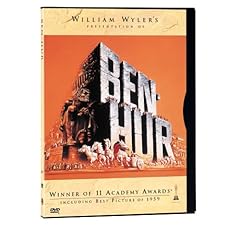February Book Winner: Congratulations to Brenda Drazkowski. Send me your physical address, Brenda, and I’ll send you either The Stained Glass Pickup or A Scrapbook of Christmas First, your choice. Can’t decide: read reviews at http://www.amazon.com/
Send an email to writecat@consolidated.net or leave a comment at blog: http://stainedglasspickup.blogspot.com/ to enter the March book contest
***********************************************************************
Converse with 20 Christians and they will tell you 20
 different ways God piqued their interest in him and encouraged their belief in Christ. One such story comes from the Civil War General Lew Wallace who authored the book Ben-Hur: A Tale of the Christ.
different ways God piqued their interest in him and encouraged their belief in Christ. One such story comes from the Civil War General Lew Wallace who authored the book Ben-Hur: A Tale of the Christ.When a young boy, Wallace’s mother told him about the Wise Men, who searched for the King of the Jews. That story intrigued him throughout his adult years, and he eventually wrote “The First Christmas,” a fictional account of the Wise Men. He didn’t submit it for publication, but put it away. His church attendance sporadic, he confessed that his “attitude with respect to religion had been one of absolute indifference.”
He read sermons from some of the “best preachers” of his day—Bossuet, Chalmers, Robert Hall, and Henry Ward Beecher—but only “for the charm of their rhetoric.” In 1876, a “chance” meeting with atheist Colonel Robert G. Ingersoll, breached his indifference. On a train together, Ingersoll discounted believers in God, Christ and heaven with “argument, eloquence, wit, satire,” and “brilliant antitheses,” Wallace later wrote.
At his destination, General Wallace disembarked alone. Instead of taking the streetcar, he chose to walk because of his “confusion of mind.” He had no answers to any of the Colonel’s opinions. Wallace, ashamed of his ignorance, remembered the manuscript he’d written about the Wise Men searching for The Christ Child.
He decided to finish the story through to the crucifixion. He reasoned that the writing would oblige him to study the Bible and everything relevant to the event. He thought he would then possess “opinions of real value.” The book Ben-Hur: A Tale of the Christ resulted. Wallace also journeyed to a belief in Jesus, “a conviction amounting to absolute belief in God and the Divinity of Christ.”
God addresses unbelief in this statement: “I am God and there is no other; I am God and there is none like me.” He continued, “My purpose will stand; and I will do all that I please. From the east I summon a bird of prey; from a far-off land, a man to fulfill my purpose” (Isaiah 46:10-11). God knows how, when, and where to stimulate interest in himself, even through an atheist’s opinions.
The story of the Jewish prince Judah Ben-Hur and his path to belief became a stage play. The chariot race presented an obstacle to the stage production, but eventually, in the play first performed on Broadway in 1899, eight trained horses pulled chariots and ran on treadmills.
After 21 years of worldwide performances, an estimated 21 million people viewed the stage production. One historian said the play "brought millions to their feet to cheer and more millions to their knees to pray?"
Later, MGM produced the 1959 motion picture Ben-Hur, starring Charlton Heston, which won 11 of the 12 nominated Academy Awards. An animated version, featuring the voice of Charlton Heston, and I watched the DVD with my young grandsons.
During the movie, we talked of ancient Roman rule and Rome, Italy today, and in a lighter moment, I explained the difference between leopards and lepers. They asked questions about Jerusalem culture and questions about God. They showed empathy for the sick and oppressed. Those special moments are treasures for me. And they had their beginnings in Civil War General Lew Wallace’s journey—a journey to The Christ.
(Suggested family activity leading up to Easter: Watch the movie Ben-Hur.)
Visit Cathy at http://www.cathymessecar.com/









No comments:
Post a Comment